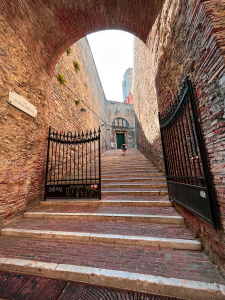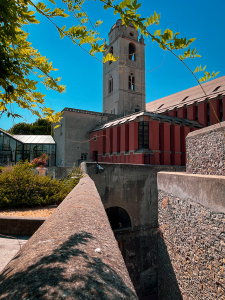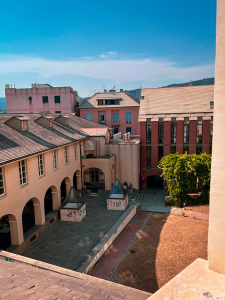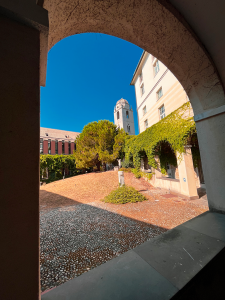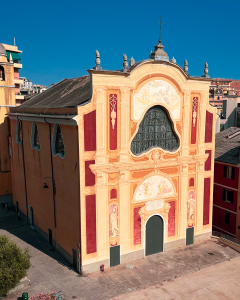The Venue
The 18th OpenFoam Workshop will be held at the Department of Architecture and Design of the University of Genoa.
This is an articulated set of buildings in Genoa’s oldest and most multi-cultural heart. Thanks to the project of the architect Ignazio Gardella who built a new block, the classrooms and offices of the campus are now housed on the ruins of ancient monasteries and in the churches around the medieval core of the Bishop’s Palace on the “Collina di Castello”, known as one of the oldest settlements in the city.
The cloister, the raised garden, the harbor view, the frescoes and the bricks of the arcades are a fascinating and ideal context for the campus. Immersed in the historic center of Genoa, it has a significant link with the most vital and creative part of the city, close to theaters, artisan shops, and typical places that enter the daily life of those who study and work here.
Address:
Stradone S. Agostino, 37 – 16123 Genova (GE)
Tel: +39 010 209 5904
The reception is on the Fourth floor, room 4B, and you can use the elevator or the stairs.
Website: architettura.unige.it
The Department of Civil, Chemical, and Environmental Engineering (DICCA)
The Department of Civil, Chemical, and Environmental Engineering (DICCA) is one of the 5 departments of the Polytechnic School of the University of Genoa, which was established in 1471.
The University of Genoa also counts more than 25 research centers, 2 excellence centers (bio, logistics), 46 spin-offs, 32000 enrolled students, and a staff of 2500 academics and 1200 non-academics (technical and administrative personnel). Its campus is spread over the city in several buildings on UNESCO world heritage list. It is also located in some other main cities of the Region.
The Department of Civil, Chemical, and Environmental Engineering (DICCA) is located in Genoa, with a staff of 71 academics and 25 non-academics (technical and administrative personnel). The department manages 5 different curricula (Civil, Chemical, Environmental, Construction-Architecture and Building Retrofitting) and laboratories in Wind Engineering DICCA/DIFI, pollutants into atmosphere, aerodynamics, urban and building dynamics, aeroelasticity, wind energy, Hydraulics (river, coastal, biomimetics).
Our involvement in OpenFOAM outreach
Within the department, many undergraduate, master, and PhD theses have been conducted since 2011 using OpenFOAM on topics such as: fluid-structure interaction, biofluid dynamics (eye, nose, blood flow), porous media, superhydrophobic surfaces, flapping wings, spray drying, naval applications, energy harvesting, coastal engineering, optimization techniques, and many more.
We have been conducting OpenFOAM training at introductory and advanced levels to target academic and industrial needs since 2011. Our classroom training has been attended by more than 600 people from all over the world.
